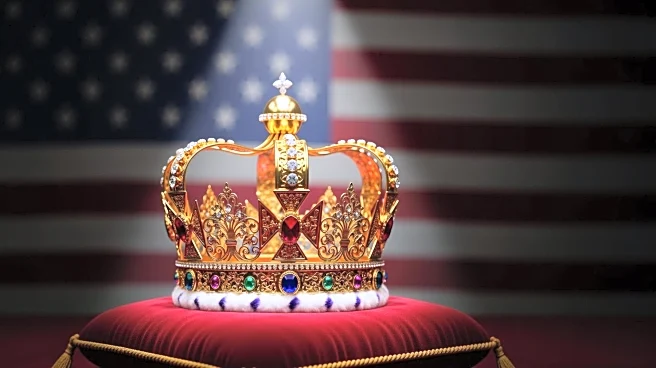What's Happening?
President Trump expressed dissatisfaction after being rated as the 'third best' U.S. president during a lunch with Senate Republicans. He compared himself to George Washington and Abraham Lincoln, acknowledging
their higher ratings but expressing a desire to surpass them. Trump also received the Architect of Peace Award from the Richard Nixon Foundation, which honors individuals who contribute to global peace. Despite his achievements, Trump voiced frustration over the ranking, citing his efforts to end multiple wars, including the ongoing conflict between Russia and Ukraine.
Why It's Important?
The ranking and Trump's reaction highlight the ongoing debate about presidential legacies and their impact on U.S. history. Trump's desire to be recognized as the best president underscores his focus on legacy and public perception. The award from the Nixon Foundation adds to his accolades, potentially influencing his standing among supporters and critics. The mention of ending wars and the Nobel Peace Prize nomination reflects Trump's emphasis on foreign policy achievements, which could affect his influence in international relations and future political endeavors.
What's Next?
Trump's pursuit of recognition may lead to further efforts to enhance his legacy, possibly through additional foreign policy initiatives or public campaigns. The nomination for the Nobel Peace Prize, supported by House Speaker Mike Johnson, could bolster Trump's international reputation if successful. However, the fragility of the ceasefire in Gaza and ongoing global conflicts may challenge his peace efforts. Political leaders and analysts will likely continue to debate Trump's legacy, influencing public opinion and historical assessments.
Beyond the Headlines
The ranking and Trump's reaction may spark discussions about the criteria used to evaluate presidential success and the role of public perception in shaping historical narratives. Ethical considerations arise regarding the accuracy of claims about ending wars and the implications of such statements on international diplomacy. The pursuit of awards and recognition may reflect broader cultural values about leadership and achievement, influencing how future presidents approach their legacies.









